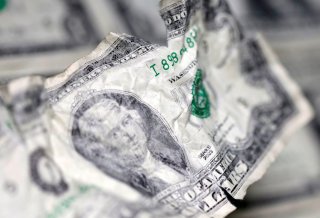Confusing: Japanese Citizens Received $1,400 Stimulus Checks
It appears that the $1,400 coronavirus stimulus checks under President Joe Biden’s American Rescue Plan are crossing international borders and landing in the hands of non-U.S. citizens.
It appears that the $1,400 coronavirus stimulus checks under President Joe Biden’s American Rescue Plan are crossing international borders and landing in the hands of non-U.S. citizens.
It was recently reported that some senior citizens in Japan are being surprised to find stimulus payments in their mailboxes.
“In the case of Japanese citizens specifically, if they lived in the U.S. before 2005 when the U.S. and Japan made a bilateral Social Security deal called the totalization agreement, they were required to pay into the Social Security system, and the IRS still has their records,” according to Newsweek.
One expert from an international tax consulting firm believes that the agency made a mistake “connecting the stimulus payments to people who are getting the totalization agreement payment.”
That is likely true considering the fact that a “nonresident alien in 2021 isn’t eligible for the payment,” says the Internal Revenue Service, adding that these recipients of the checks should return them promptly.
However, keep in mind that any lawful permanent resident with a valid Social Security number who pays taxes in the United States is, in fact, entitled to the stimulus payments.
These residents are individuals who are legally residing permanently in the country as an immigrant, and they are generally given an alien registration card—which is also known as a green card.
It is possible, though, to be a qualifying resident alien without possessing a green card. According to the IRS, this includes people who are physically present in the country on at least thirty-one days during the current year, one hundred eighty-three days in the past three years, including the current year, and has a valid Social Security number.
As for U.S. citizens currently living and working abroad, know that they are indeed entitled to the third round of cash deposits. More than likely, the IRS should have either direct deposited the payments into a U.S. bank account or mailed them using information from the most recent tax return or Social Security retirement or another federal benefits program.
But do take note that the IRS isn’t able to directly deposit money into foreign bank accounts.
Regardless of country of residence, income thresholds still need to be met in order to qualify for the direct stimulus. Individuals who earn as much as $75,000 in adjusted gross income or couples making $150,000—in addition to their children or adult dependents—qualify for the full $1,400 per individual. In addition, single parents with at least one dependent who earn $112,500 or less also receive the full stimulus amount.
However, the payments for this round phase out much more quickly than in the first two—an individual with an income of $80,000, or a couple with $160,000, will not be receiving any stimulus check.
Ethen Kim Lieser is a Minneapolis-based Science and Tech Editor who has held posts at Google, The Korea Herald, Lincoln Journal Star, AsianWeek, and Arirang TV. Follow or contact him on LinkedIn.

